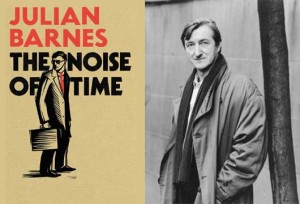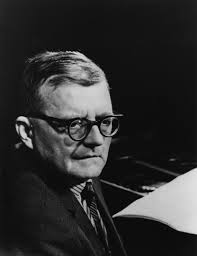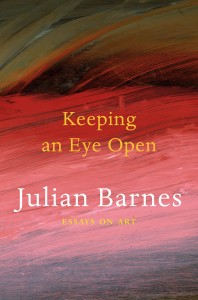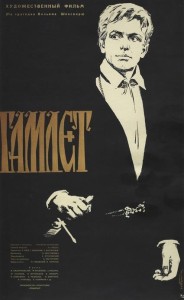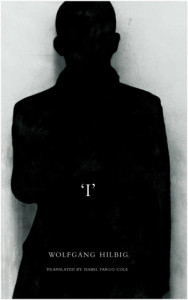An Interview with Sam Miller on his Tribute to his Fathers
( I interviewed Sam Miller on his memoir Fathers for Bookwitty. It was published on 13 June 2017.)
Veteran journalist Sam Miller was born and brought up in London but chose to spend the better part of his life in India. His father was the renowned literary journalist, Karl Miller, who co-founded the London Review of Books. His mother, Jane Miller, is a writer who has also worked as a publisher, translator and teacher. Miller joined the BBC World Service and was stationed as the BBC TV and radio correspondent in Delhi and then as Managing Editor, South Asia. His love for India runs deep as is evident in the many books he has published: Delhi: Adventures in a Megacity (2009), Blue Guide: India ( 2012) and a Strange Kind of Paradise: India Through Foreign Eyes (2014).
His elegant essay for Granta, “Gandhi the Londoner” makes for a compelling read. It was propelled in large part by Sam Miller’s curiosity about the years Gandhi spent in London upon his arrival in 1888, a period glossed over in Richard Attenborough’s Oscar-winning film. What comes through clearly is Sam Miller’s obsession to know more about the past, in particular that which is less remembered in the popular imagination, and to weed out historical inaccuracies that may have crept into modern retellings of this period in Gandhi’s life. It is this remarkable quality as a discerning writer and historian that comes together beautifully in Sam Miller’s recent memoir Fathers. In early 2014 Miller returned to his childhood home in London to spend time with his father, who was dying. Shortly after his death, Miller began to write about his father, investigating a family secret that he had been told about years ago, involving his parents and a close friend. With his mother’s help, his father’s documents, and interviews with people from the large circle of his parents’ friends, he put together a heart-warming memoir that explores childhood, marriage, and friendship, as well as exploring the personal relationship each of his parents had with their closest friend from Cambridge, Tony White.
Miller kindly answered questions for Bookwitty:
How many drafts did this memoir take? It flows smoothly as if it just wrote itself. There is almost magically ethereal quality to it.
It was the easiest thing I’ve ever written; it just came pouring out of me. There were one and a half drafts really. I’d written about half the book in conventional chapters, with long passages of prose. It felt a bit stodgy and linear to me, with all those ‘joining together’ sentences that often feel artificial. At the time, I was reading a French book called HHHH by Laurent Binet, and he uses short numbered chapters—and I tried it out, breaking up the text, inserting a few mini-chapters that enabled me jump more easily in time and place. I hope it allowed the text to flow more smoothly, more naturally—bringing it a little closer, in my view, to the way we talk and the way we think. I read my words out loud to myself as I write, and it is important that the text sounds right, as if I were writing for radio.
The elegant manner in which you write investigating your paternity also conveys the immense love you grew up with. Was Fathers emotionally tough to write?
It felt good for me, as if it were a kind of therapy, a way of releasing something that I’d half-buried. But it also was about dealing with grief, and a more specific sense of anger with myself for having not been there when my father died.
This story is as much yours as it is your parents’ and their close friend Tony White. How did you feel about your mother supporting you on this project? Would you have written this memoir if it had not been forthcoming?
I write anyway, not always for publication. So I think I would have written this tale, for myself at least. But my mother was always part of the story, and the telling of the story. I wouldn’t have published it without her support.

How closely involved was your mother with this manuscript? Were you required to make any critical changes in the drafts—sections you felt needed to stay and your mother thought otherwise or vice versa?
I would talk to her as I was writing, but only showed it to her in larger chunks. We did discuss minor changes, but nothing I would describe as critical. I know so much of the story through her anyway (and she is a writer too); that it has a strong Jane Miller imprint on it, though the final version is very much mine in style and content.
The forgiving nature of your father is an extraordinary quality to have just as the calm acceptance of your presence in the lives of the three adults: Karl and Jane Miller and Tony White. While writing Fathers did you ever wonder about the evolution of the institution of marriage? It seems to have been far more accommodating in your parents’ generation than it is today.
I don’t feel very well equipped to comment on the institution of marriage, but I do think that almost every couple’s relationships are pretty different from each other. And therefore simply following convention and ideas of normality are not a great basis for forming a relationship. I’m not quite sure that ‘forgiving’ is the right word here; I think my father’s response was more complicated than that and related to his own upbringing, and to his own ideas about the (un) importance of fidelity.
Does the crucial family secret your mother shared make you ever wonder about the popular debate about genetics vs environment being influencing factors in the growth of an individual?
Yes, I do. But I’ve not come up with any useful conclusions. I’ve been intrigued to notice the ways in which I am similar to Tony White, but these are not necessarily genetic. They could be learned, from what I know of Tony—and more indirectly and even subconsciously via my parents.
Many times in the memoir you allude to your father’s poems describing his friends bordering on the homoerotic or comment often on his close male friendships which, for his generation, seem nothing out of the ordinary. “Karl Miller struggled to reconcile close male friendship with the possibility or reality of homosexual love. My father was not, I think, a homophobe, but was sensitive to accusations that he might be.” Do you think it’s fair to your father and his generation to read in to their relationships what is a popular 21st century concept of homosexuality?
I’m not so sure that it was so different in the fifties; it was just talked about less. I would distinguish homoeroticism from homosexuality, as think my father would, and as I think Thomas Mann would have even before my father was born.
While writing this memoir were there any others you referred to as literary examples to emulate?
Not really. It was written for me, and then my mother. I was pleasantly surprised when the earliest other readers liked what I had written—I had been expecting them to suggest changes, particularly to the structure.
Of all the diverse genres you have published, travelogue, translation and memoir, which has been the most challenging and why?
I’ve written a history (A Strange Kind of Paradise) and a guidebook (Blue Guide India) as well! The guidebook was most exhausting. The history book involved the most research—and that was probably the most challenging—I wanted it to be interesting for people who think they aren’t interested in history. The publication (rather than the writing) of Fathers was quite a challenge – a nerve-racking experience. I was apprehensive about the response to what I had written. But the response has been largely positive.
Sam Miller Fathers Jonathan Cape, London, 2017. Hb.
13 June 2017

